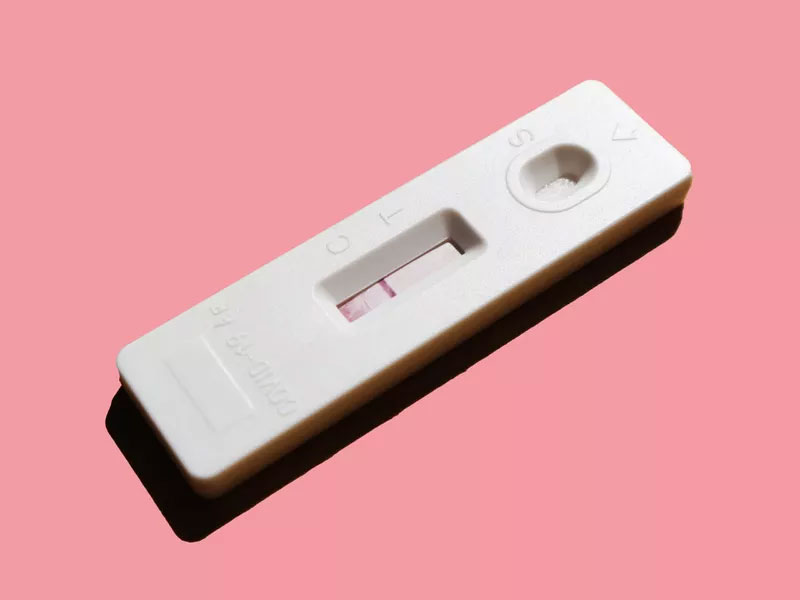Omicron and Testing: Is the New Variant Slipping Through the Cracks?

Key Takeaways
- According to the Food and Drug Administration (FDA), the Omicron variant has mutations that may cause some COVID-19 tests to miss it.
- However, despite the mutations, current testing methods are still useful for diagnosing COVID.
- Rapid antigen testing, which can be done at home, also allows people to test repeatedly for COVID.
COVID-19 testing has become a routine part of our daily lives as we continue to navigate a world that is stricken by the virus. Adding to the stress is in the most recent variant of concern—Omicron—the number of mutations in the virus may have outpaced current testing measures.
The Food and Drug Administration (FDA) recently released a list of COVID PCR tests that may not accurately detect the Omicron variant, presenting people with a false negative result.
Verywell spoke to Adrianna Bravo, MD, FAAP, pediatrician, and senior medical advisor for Inspire Diagnostics, about the science behind why Omicron is slipping through the testing cracks.
Does Omicron Affect COVID Tests?
To understand how Omicron affects COVID tests, we have to start by explaining how standardized testing for COVID works.
A polymerase chain reaction (PCR) test is the gold standard and the most accurate form of testing for COVID-19. It identifies the virus by looking for specific genetic codes, or RNA, that is unique to COVID-19.
Rapid antigen testing works a little differently; instead of looking for genetic code, these tests look for molecules on the virus’s surface—the infamous spike protein.
Rapid antigen tests are less accurate than PCR tests, but they are more time-efficient and allow people to test many times over a few days, which can help detect the virus as it takes hold in the body.
When the virus mutates, parts of the genetic code change. Many tests search for several different markers on the code, but if one of the markers has mutated, it may go undetected.
Bravo told Verywell that Omicron’s numerous mutations are different from the genetic markers that the current PCR tests use.
“The Omicron variant has a significant number of mutations—30 plus,” Bravo told Verywell. “When we look at those mutations, some of them are on the portion of the genetic code that some PCR tests use to detect the virus.”
Bravo said that if the specific portion of the genetic code that the test is made to detect happens to be one of those 30-plus mutations, then the test may not see the virus and a person might get a false-negative test result.
Encouragingly, though, Bravo said that many PCR tests look for several portions of COVID’s genetic code. Looking for more sections means there’s a greater likelihood of detection—which is why the FDA specifically warned about COVID tests that look for just one section of the genetic code.
So far, rapid antigen tests seem to be working in the face of Omicron. While rapid antigen tests are less accurate than PCR tests across the board, they appear to be just as good at detecting Omicron as they were at detecting the Alpha or Delta variants of the COVID virus.
Do We Need New Tests?
According to the FDA, research on how Omicron could affect COVID tests is ongoing. Based on what we know so far, there are tests in use that are able to detect the variant.1
For example, antigen tests do not seem to be as affected by the mutations of Omicron as molecular tests because the spike protein is still very much present (and that’s what antigen tests look for).
Even though antigen tests are not as accurate as PCR tests, the ability to test sequentially increases their value. Geoff Trenkle, D.O, CMO, and the founder of Total Testing Solutions, told Verywell that the ability to get results back quickly is one reason that rapid tests continue to be useful.
“For more accurate rests, we always recommend doing rt-PCR testing—especially if you are symptomatic,”‘ said Trenkle. “Rapid testing is less accurate as a rule of thumb, but if you need a result quickly, it is very helpful. If you’re asymptomatic and want to visit relatives, any test is better than no test at all.”
Bravo agreed, adding that “rapid antigen tests are a great tool for surveillance of the virus. If you’ve done something high risk—such as a big gathering—you can start taking the test two to three days later at home, and then testing 24 hours after that to ensure you haven’t picked up something.”
Does the Variant You Have Matter?
According to Bravo, all tests are processed in the same way. The variant is determined by whether the test picked up on one or more genetic markers. Again, while most tests look for two to three genetic markers, the tests that the FDA is concerned about are only look for one.
Doing more testing, whether PCR or rapid antigen, will not tell you which variant you have—but that’s probably fine. Bravo said that information is really more of interest to health care professionals and researchers than it would be for you.
“A positive is a positive,” said Bravo. “Follow the same pathway of isolating, contact tracing, and taking care of the community around you to not spread it to others.”
What This Means For You
Testing will be integral to our response to Omicron in the coming months, as evidenced by the White House’s initiative to send out at-home tests to all American citizens.
While there might be a greater likelihood of getting a false negative result with some PCR tests, testing is still encouraged—especially if you have COVID symptoms.
When in doubt, a rapid antigen test will give you a snapshot of your viral load at the moment and can be repeated until you get a conclusive negative or positive result.
The information in this article is current as of the date listed, which means newer information may be available when you read this. For the most recent updates on COVID-19, visit our coronavirus news page.


:max_bytes(150000):strip_icc():format(webp)/RachelMurphy-1aadd39459364ba088b9fb82a2dd88cd.png)
